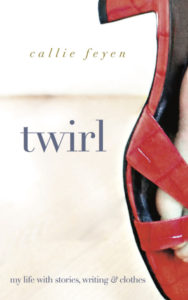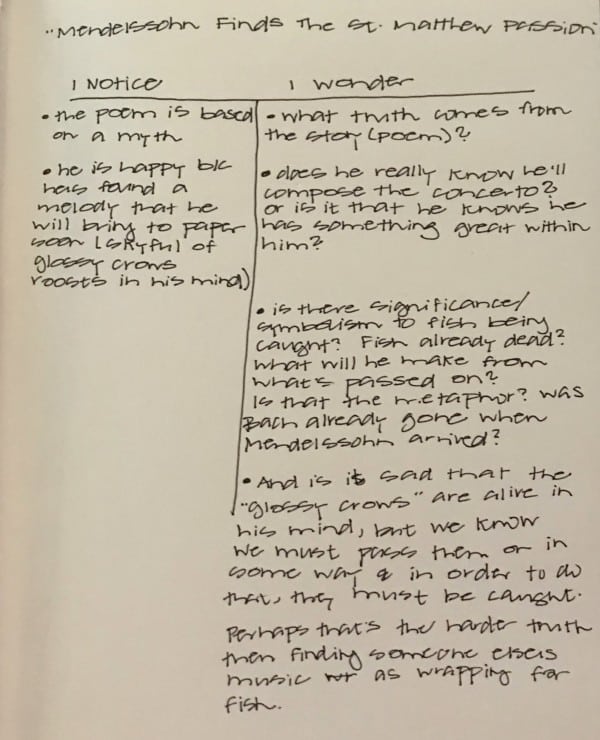Last week, my daughter Harper threw a fit because she couldn’t find her hairbrush. Her fits are personal — she screams, yells, and punches things in private because she means to work it out herself. We can all hear the battle.
I am of the same make-up, and I understand this bubbling of emotion and its need to be released. On this day though, I tried to get Harper to calm down. I asked her what was wrong.
“I can’t find my brush!” she screamed.
Hadley, who was behind me mumbled, “OK, Voldemort.”
I responded with a “don’t make this worse” glare.
“Alright,” I said, taking a deep breath. “Let’s use your gray matter.” I continued, quoting Kate DiCamillo’s and Allison McGhee’s Bink & Gollie books. (To use your gray matter means to step into that space where black and white merge, where imagination is at its richest.)
“Do you know anyone else in this family who has a brush you might be able to use?”
“Yes,” Harper said, her hands covering her face — my trick as well — to try to keep the emotions at bay.
Hadley offered Harper her brush, and I offered to put her hair in Dutch braids, a style I’ve been practicing on myself and my girls since summer began.
Harper was still upset, and as I parted her hair in two sections, I asked what was wrong.
“Sometimes I feel like such a bad person,” she explained.
“You’re not a bad person,” I said as I began a braid. “All your feelings have a weight to them, and that’s not easy to carry.”
I continued to coil Harper’s hair so that the braid sat on top of her head. I’ve always loved this style. This is how I imagine a warrior princess would wear her hair.
“I’m the same way,” I told her, twisting an elastic around a finished braid. “It’s just that sometimes our feelings don’t exactly match the situation we are in.”
I began the next braid, careful to make sure this one matched up to the first. That’s the hardest part for me. “Remember that trick you taught me about reading poetry?” I asked.
“Poetry?” Harper asked.
“Yeah, you told me about noticing and wondering when we read poetry,” I said as I brushed out the braid I’d begun. The two weren’t even. “You said when you read a poem, it’s good to notice and to wonder. When you notice something, it’s something you can prove: this poem is a haiku; this poem has a bird in it.”
I twisted Harper’s hair and eyed the other side. I was beginning to match things up. “When you wonder, you point out curiosities and questions you have about the poem.”
“I remember that,” Harper said, and her voice softened.
“I think treating our situations like poetry might help us,” I said, fitting the second elastic on a completed braid and flipping it over her shoulder. “I think it could help us step into our gray matter.”
Harper smiled and tugged on her braids. I kissed the top of her head and looked into the mirror at the two of us. “That’s where the magic is,” I whispered.
She stood and walked to her bedroom where on her door is a poem she wrote about noticing:
I AM
creative and smart
I wonder about fairies
I hear soft talking
I see artwork
I want to dance
I am patient and
cheerful
I pretend to fly
I feel happiness
Like me, Harper’s superpower is taking a small thing and making it into a big deal. And with every superpower, we must decide whether to use it for good or for evil. I think as long as Harper and I look at our lives like poetry, and not like a lost hairbrush, we’ll be just fine.
Try It
This week as you read poetry, make a “Notice/Wonder” T-chart and jot down your observations and curiosities. This is a great practice for the poems you write too. Here are some pictures from my poetry journal. I’m currently reading Jeanne Murray Walker’s book of sonnets Pilgrim, You Find the Path by Walking.
Photo by Bart Everson Creative Commons via Flickr. Post by Callie Feyen.
A Writer’s Dream Book

—Sarah Smith, Executive Editor Prevention magazine; former Executive Editor Redbook magazine
- Poetry Prompt: Courage to Follow - July 24, 2023
- Poetry Prompt: Being a Pilgrim and a Martha Stewart Homemaker - July 10, 2023
- Poetry Prompt: Monarch Butterfly’s Wildflower - June 19, 2023


L.L. Barkat says
Oh, Callie. This is such a tender sweet story. I love how you let your own daughters teach you and then bring their wisdom back to them (and you) at times like this.
How lovely, too, to have our mom see the advantage of our “hairbrush” (car fire? 😉 sides in a moment where it feels like it’s steered towards something we can’t handle and don’t understand.
Callie Feyen says
Thank you, Laura. Indeed, they do teach me so much. I’m a lucky mama.
Cheers to many hairbrush moments, and to looking for the poetry in them. 😉
Sandra Heska King says
“I think as long as Harper and I look at our lives like poetry, and not like a lost hairbrush, we’ll be just fine.”
Well, that just about sums it up. And braiding can balance out a lot of things. 🙂
Callie Feyen says
That last line is Megan’s. She’s a master, that one. 🙂